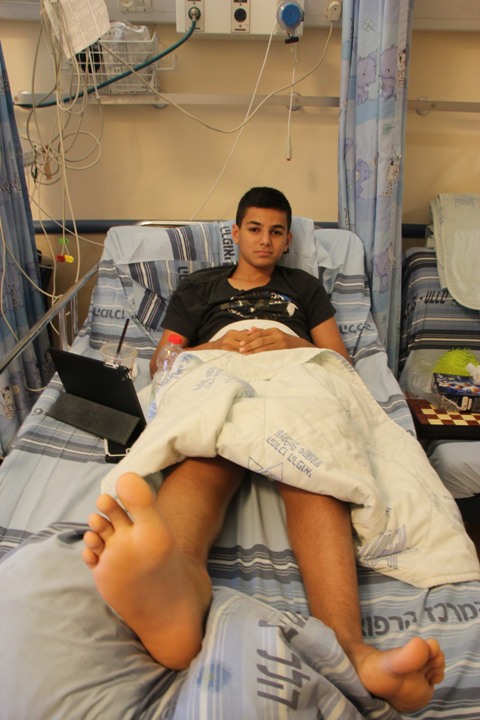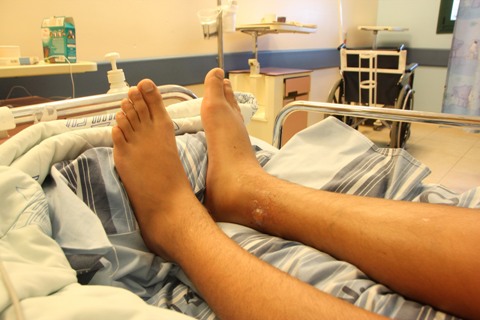A few days ago, Idan Cohen, a 13-year-old boy from Burgata, was brought into the Pediatric Emergency Room after a snake bit him in the leg while he was in the schoolyard. He was rushed to the hospital, where it was decided to administer antivenom due to the swelling that was spreading rapidly and the fear of damage to his leg and a systemic injury. The boy was hospitalized in the Pediatrics Department for continued follow up and treatment.
"Later in the day and despite the effect of the antivenom," said Dr. Adi Klein, Director of the Pediatrics Department at Hillel Yaffe, "his condition deteriorated, and we needed to involve a senior orthopedist to decide whether we should operate on the leg to release the pressure due to the significant swelling. In the end, we were able to stabilize his medical condition without surgery, which would have required several months to heal, and the swelling subsided, much the pleasure of all those involved."
"The entire staff here couldn't have been better," emphasize Ido's parents, "We have no doubt that without their outstanding treatment, the episode could have ended very badly." Ido is still hospitalized in the department, but his condition has improved tremendously, and he is already able to stand on the injured leg.
Dr. Klein would like to remind everybody that that snake bites at the end of spring are the most dangerous and that even if the snake is small and young, this does not necessarily mean there is a small amount of venom or less physical danger if bit. Moreover, some believe that a bite by a young snake or a snake at the beginning of the season is even more dangerous, because they still have not used their venom to hunt.
Typical reactions to the first snake bit are significant swelling, abdominal pain, fever, low blood pressure and hemodynamic instability. These bites also develop more quickly due to the large amount of highly concentrated venom that is stored in the winter.
"Note that not every person who is bit will need antivenom treatment," said Dr. Klein, "But even if the symptoms are not particularly acute, the victim should be taken to the hospital for diagnosis and treatment. Furthermore, you do not need to bring the snake to the emergency room - most people are bitten by the Palestine viper and are treated accordingly."

Ido recovering in the Department of Pediatrics

The marks from the bit and the swelling can still be seen on Ido's right leg